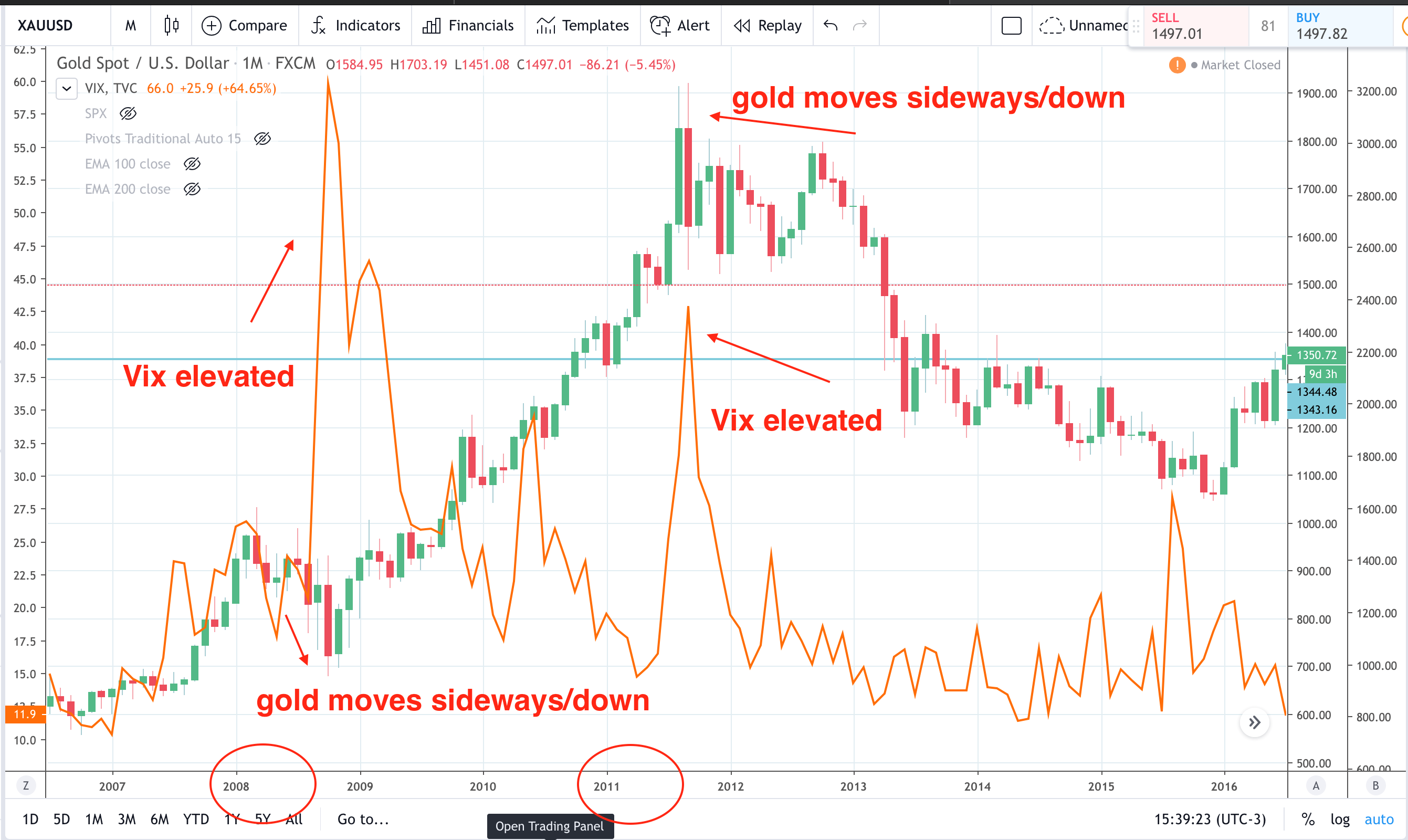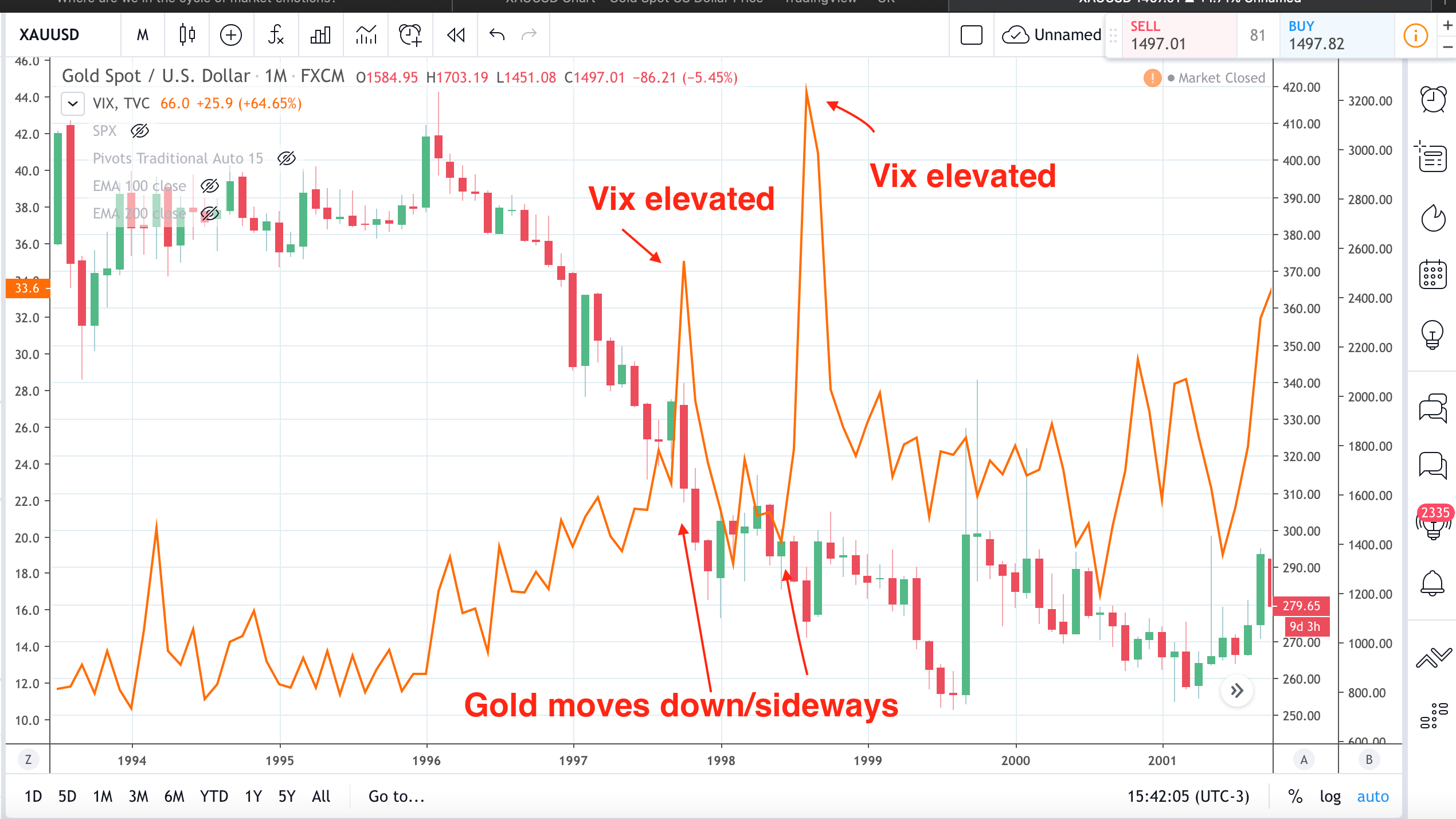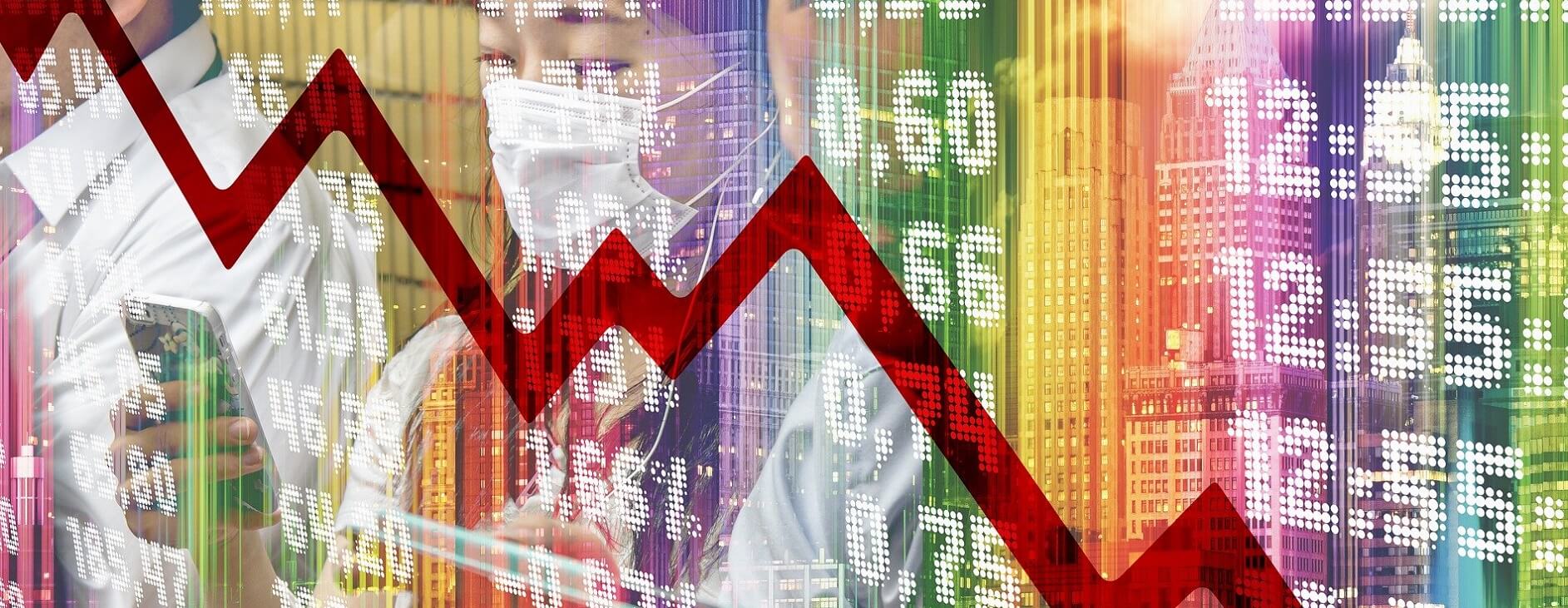The Covid-19 crisis continues to rage relentlessly, making its way into new countries and regions every day. Countries resorted to strict lockdowns to face this unprecedented crisis. Naturally, global business and consumer sentiment has been hurt, with disruption in day to day lives, supply chains and economic activity. But what about the forex markets, how have they been reacting? Many people are speculating but as a financial services content marketing agency we deal in facts. So we went straight to the brokers and asked them directly. In our roundup Forex Trading in a Pandemic: Brokers Speak Out you will hear how the markets are reacting, the opportunities that volatility brings for traders, and insights from some of the top global brokers. Want to add your commentary? Contact us here.
“The type of volatility we have seen over the last couple of weeks only happens once in a generation. They don’t teach you in business school about government-induced economic comas, because quite frankly this has never happened before on such a global scale. We can certainly hope for the best by freezing all of our activity, but currently we are all swimming in uncharted waters without knowing where the tide will take us. Think of all the sensitivity and risk analysis that was performed by companies, fund managers, or banks before the pandemic…did anyone even think about running a scenario whereby oil would fall to $20? And that hotels and airlines would experience an 80% drop in revenues? And that automakers would suspend their production lines? The impact is so widespread and so immense. Usually worst-case scenarios are based on precedent, such as market movements that occurred during 9/11 or the Tequila Crisis. But what we are living through today is its own unique scenario that quite frankly is still very much unpredictable”.
Anthony Kinnis, Chief Market Analyst at NAGA Markets
and below, David Hannigan, Chief of Risk at TIOmarkets echoes market sentiments:
“The current Covid-19 induced market volatility is an unprecedented event in modern financial history. Even through 2 Gulf wars, 9/11 and the global financial crisis of 2008-2009, we didn’t witness the magnitude of the moves we are currently seeing. The speed at which this pandemic has essentially shut down the global economy has no precedent and the potential fall out, even though potentially short term in nature, can not be accurately predicted by even the best economic models.”
Financial Markets Reeling
The financial markets are in turmoil. The crisis has not spared a single asset class, including the so called “invincible” Bitcoin. Stock markets worldwide faced the worst week since the 2008 crisis on March 20, 2020, as major indices like the S&P 500, Dow Jones and NASDAQ Composite suffered double digit losses.
“The economic crisis of COVID-19 does not originate as a financial crisis but as one of production and consumption. Similar to that caused by a war conflict. Its speed has surprised everyone”.
Miguel Angel Rodriguez Ruiz, Market Analyst, CAPEX
While major oil producers, Russia and Saudi Arabia, are engaged in a crude (in more ways than one) oil price war, fiscal and monetary policies have only been able to blunt the economic effects of the pandemic, not curb it. Multiple economies, the world over, have been hit and are taking risk-off returns, as the market downturns intensify due to the alarming spread of the virus.
However, brokers are now focusing on a bag of diversified assets, so that traders can find opportunities amidst the rising volatility.
As Amin Bellazrak, Senior Associate at Blackwell Global puts it;
“Volatility is a dream for traders, A nightmare for investors. Traders however have seen the scale of volatility as a door of opportunity. Both technical and fundamental traders at Blackwell Global have been able to profit from the dips and minor corrections that the market has experienced over the last few weeks and months”.
Volatility Could be a Boon for Informed Traders
The pandemic has resulted in huge volatility in forex instruments. The CBOE volatility index (VIX) topped 2008 levels. A decelerating economy tends to weaken the domestic currency. So, while certain currencies are taking massive hits, others may see slight increases in volatility. Trading strategies need to be re-thought, to include these changes. A country seeing a surge in the infection count may see an increase in volatility.
Charalambos Patatos, Executive Director at CAPEX notes that:
“Fundamentals are shaken and we will see phenomena that we have never seen before with unemployment getting affected tremendously and industries that are directly hurt, such as transportation, tourism, etc. It is expected that we will see in the near future mergers and acquisitions or even liquidations”.
Here’s a look at how the forex market has been faring so far.
Roller Coaster Ride for Currencies
“In current markets average daily ranges have seen rapid increases. Currency pairs that normally move 50-80 points a day are finding that they move 300-600 points. Equity markets which previously moved around a maximum of 1-2% a day are now moving up to 10% in a single market session”.
Says HYCM Chief Currency Analyst, Giles Coghlan.
The severe hit to the markets has led to investors liquidating almost everything for cash holdings, making the US Dollar surge. Due to its safe haven quality, the greenback is the most in-demand currency right now and will likely retain that stature in the near future. The US Dollar index (DXY) has surged to its highest since January 2017, at 104.00, on March 23, 2020, and is experiencing volatility that has not been seen in years.
As FP Markets Analyst, Aaron Hill accurately points out:
“Rampant demand for dollars remained unabated last week in a scramble for liquidity, with perceived safe-haven markets trailing. Regardless of global risk sentiment or if US Treasury yields have been rising, dollar demand remains in the headlines”.
In contrast, the EUR/USD has been falling, reaching an almost 2-year low of 1.0637. The Cable (GBP/USD) plummeted to a multi-decade low of 1.1409 on March 22, 2020. However, the next day, on March 23, 2020, the GBP made a pullback to 1.1655, despite concerns of a full-scale UK lockdown, as the US Senate failed to pass the much-awaited Covid-19 bill.
The Safe-haven USD/JPY, has been surging to its highest level since February 2020, trading at 111.50. Increased demand for the greenback might overshadow its safe haven status, but it will nevertheless retain its bullish trajectory, amidst economic uncertainty.
CAPEX’ Market Analyst, Miguel Angel Rodriguez Ruiz, is also bullish on the greenback,
“US dollar is, and could continue to be, the primary beneficiary. The need for liquidity from emerging countries with problems and indebted in US currency could continue to lift the US dollar, which could lead the euro to lose the minimum support levels of 2017 at 1.0340, especially if financial stress causes a new debt problem in vulnerable countries of the European Union”.
Crude Oil Price Volatility
The oil price war threatens widespread collateral damage to the global economy. On March 20, 2020, the West Texas Intermediate (WTI) suffered double digit losses, after gaining in double digits in the previous session. WTI crude settled at $22.63, after losing 12.32%, as the US Dollar strengthened and expectations of the release of millions of barrels of crude oil on the market from April 1, 2020, onwards. Brent Crude fell 4% to $25.89. Government lockdowns, due to the outbreak, slashed the demand outlook for oil. After April 1, 2020, with no production limits and demand destruction, the price of crude oil could continue to fall in the short term.
Gold Trading During a Pandemic
HYCM’s Chief Currency Analyst, Giles Coghlan gives us a very satisfying answer to a perturbing question.
“The normal playbook is that in times of crisis, buy gold. However, although that is generally true, it is not the case when there is a really strong crisis like we have now. In these instances, gold sells off. Looking at the charts below and you can see that when the VIX (the fear indicator) is highly elevated, like in 2008/09 and 2011, gold moves sideways or downwards:”

And in the 1990’s:

“Can you see the impact? Now at the moment people are liquidating all their positions and converting into cash. So, if you are looking to buy gold, wait for the VIX to drop. That’s when historically we start to see a rise in gold prices. Until then, if 2008/09 and 2011 gold action is repeated, we will see gold trading sideways/down.”
Recent developments by central banks and governments have however benefited gold. On March 21, 2020, gold finished trading just below $1,500/troy ounce. Fears of coronavirus-led recession have been further bolstered by the US Senate’s failure to finalise a rescue package. Gold might reach the $1,600/troy ounce mark in the coming weeks, thanks to the monetary and fiscal stimuli being poured in by governments.
Cryptocurrencies React To The Pandemic
On the other hand, Bitcoin (BTC), considered the “digital gold,” due to its non-correlation with global economic downturns, failed to live up to its name in Q1 2020. The coin has not traded above the $6,000 mark since mid-March. As calls for a short ban on stocks grow, traders who want to short risky assets could resort to Bitcoin, which means the asset is on a rough path ahead. Bitcoin volatility could persist, as the cryptocurrency continues to trade off the reactions of the global financial markets to coronavirus, rather than any crypto fundamentals.
Equities During Troubled Times
Stock prices have been whipsawing at such a staggering speed and volume that it becomes difficult to predict any immediate direction. For instance, the Dow Jones moved over 1000 points in a week, this kind of action hasn’t been seen since 1987. Central banks are scrambling for whatever stimulus measures they still have in their arsenal to deploy. The BOE for example has cut interest rates to the lowest level for 350 years.
As CAPEX, Market Analyst Miguel Angel Rodriguez Ruiz puts it,
“Estimates of the consequences on GDP cannot be precise… extraordinary liquidity measures adopted by the central banks and the fiscal ones are undoubtedly going to help; there are even talks about purchases of stocks by the central banks and the governments”.
Insights and Tips from Brokers
HYCM’s Chief Currency Analyst, Giles Coghlan puts it very succinctly:
“Intelligent traders are responding the following way: First, they are widening stop losses. Instead of using narrow stop losses they allow for the heightened volatility. Second, they do not use high levels of leverage. Traders are making sure that they allow for the huge ranges by reducing their risk in their trades”.
Meanwhile, Amin Bellazrak, Senior Associate at Blackwell Global Investments advises
“For those traders with strong risk management policies the current market presents unlimited opportunity to take both buy and sell positions. Risk and Reward opportunities are numerous across a range of derivative instruments at Blackwell from FX to Commodities & Indices.”
Chief Market Analyst, James Hughes at Scope Markets highlights the importance of education, especially at unprecedented times like these.
“The key thing around a time like this, is making sure that we can educate our clients, and protect them against the huge moves that we’re seeing. Education is a massive thing at Scope Markets, so throughout all of our regions during this time of high volatility we have looked to add continuous educational webinars, videos and written content in order to teach our clients the basics of not just trading, but of risk management”.
Charalambos Patatos, Executive Director at CAPEX gives a great overall business perspective,
“These are some tough times for everyone that we are going through but in regards to the financial markets investors would seek for more stable asset classes that are supported by the policy makers… and that would be more towards fixed income investment securities”
Meanwhile, also at CAPEX, Market Analyst Miguel Angel Rodriguez Ruiz comments on how their traders are dealing with the volatility.
“We’ve seen a lot of our traders entering short positions, where markets still allow them, or even hedging strategies to protect themselves from the volatility caused by the COVID-19 pandemic. Another interesting fact we’ve noticed that Volatile Indexes have become more and more attractive as the uptrend has taken it close to levels not seen since 2008.”
David Hannigan, Chief of Risk at TIOmarkets is also keen to emphasise the importance of volatility and discipline:
“As any trader will tell you, volatility is our friend. But going from moves that once took a year to taking a day is a huge adjustment for even the most experienced of traders. Opportunities are there, but adjusting to new levels of volatility and liquidity is a steep learning curve. Add to that the breakdown of some traditional correlations (who would have picked that Gold would move lower in such a crisis) and the landscape becomes an unfamiliar one. Until the investor community no longer has to sell because they have to; rather than sell because they want to, retail traders should be cautious of the current environment. Never has disciplined risk management been more important.”
James Hughes from Scope Markets ends on this upbeat note,
“The markets will recover and at one point we will return to the levels that we saw prior to this crisis, but the big question will be how long will it take to get there and what will be the financial cost of a market recovery”.
These are extraordinary times. We’d like to thank everyone that has contributed to this article. At Contentworks Agency we work closely with our finance and fintech clients to deliver insightful and engaging analysis, articles and social media. And to help our industry, right now we’re offering free market analysis to the first 9 applications here.
Enjoyed reading Forex Trading in a Pandemic: Brokers Speak Out? Go ahead and hit share.
